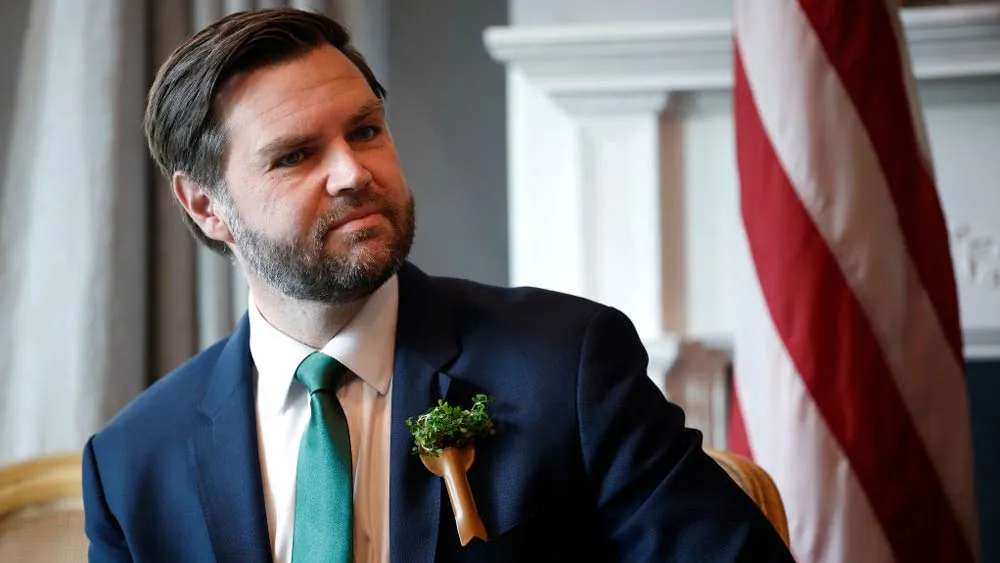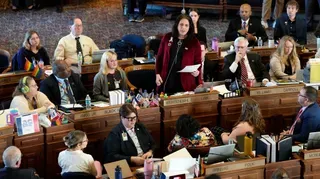October 22, 2010
Log Cabin Republicans Score
Robert Doyle READ TIME: 5 MIN.
SAN DIEGO (AP) - When he left the Bush administration in 2009, R. Clarke Cooper decided he had to raise his voice.
The decorated Iraq war veteran had been serving in the Army, with some in his unit aware that he was gay. And yet, he said, no one had ever tried to get the officer discharged under the military's "don't ask, don't tell" policy.
"This is not an example of why the policy works, it's an example of why it is broken," he said.
Almost two years later, Cooper finds himself leading a 19,000-member group for gay Republicans that has managed to accomplish what its fellow gay rights activists on the left have not - bring the 1993 Clinton-era law closer than it has ever been to being abolished.
A federal judge ruled last month in a lawsuit brought by the Log Cabin Republicans in 2004 that the ban on openly gay troops was unconstitutional, and ordered the Pentagon to stop its enforcement. An appeals court has temporarily frozen that order while it considers a government request to suspend it pending an appeal of the case.
Even getting this far hasn't been easy for Cooper or the Log Cabin Republicans.
They have never been entirely embraced within the gay rights movement, which generally finds a more receptive audience in Democrats. Many in the movement viewed the group's six-year quest to overturn the policy as quixotic.
"I heard that repeatedly. I heard that as recently as seven months ago, people saying this case didn't have a prayer," said Christopher Barron, the Log Cabin Republican's former political director and the founder of a rival group for gay conservatives.
The liberal gay rights groups' approach to ending the ban in 2004 involved suing on behalf of one sympathetic service member at a time, while they also lobbied Congress to overturn the law. Some advocates also cringed at the idea of joining forces with Republicans.
They "saw the Log Cabins as people, frankly, who want their taxes cut and are willing to affiliate with a party that is grossly anti-gay because of that," said Aaron Belkin, executive director of the Palm Center, a think tank on gays and the military at the University of California Santa Barbara who was an expert in their case.
The Justice Department tried to block the Log Cabin Republican's lawsuit from going to trial, arguing that the organization did not have members who were directly affected by the policy.
The group initially filed its lawsuit on behalf of John Does and said they were active military members who could not be identified for fear of being discharged. The group later named gay veteran Alexander Nicholson as a plaintiff to better its chances.
In its 2004 lawsuit, the group ended up arguing that the ban violated the First Amendment, association and due process rights of its members and sought its immediate demise.
"To the extent there were people who were upset I think it was because they didn't know in advance that Log Cabin was going to sue," said Jon Davidson, executive director of Lambda Legal, a gay rights legal affairs group.
Patrick Guerriero, who was Log Cabin's president from 2003 to 2006 and is now registered as an independent, recalled how it wasn't just liberal gay activists who objected. Fellow Republicans also were upset by "a lawsuit against the U.S. military, against Bush's Department of Defense."
Guerriero said the group was compelled to act after receiving letters, calls and e-mails from gay service members in Iraq discussing the difficulty of having to be pretend to be who they weren't.
At the time, Republicans were debating whether to pass a constitutional amendment barring same-sex marriage.
"People forget the climate we were in. There was no legislative road map," he said. "We thought it was important to have it be nonpartisan and even have a Republican angle to it, that that would send a more powerful message to the courts and perhaps Congress."
Cooper, who became president of the group two months before the trial began this summer before Judge Virginia Phillips in Riverside, Calif., said he was always optimistic. "There's been a general cultural shift that's been helpful to us," he said.
Phillips' ruling catapulted the group to the forefront of the fight and put President Barack Obama in the position of facing off with a Republican organization challenging a law he, too, opposes. Obama supports a legislative repeal, but it stalled in the Senate this fall.
Cooper said the fight shows Republicans are not always the enemy. "I'm not going to deny the fact that there have been years and times when the Republican party has not been friendly to the gay voter," he said, "but that's changing."
He said he has shared his secret with his closest Army friends and keeps it quiet around others whom he feels do not need to know. And he pointed out that President George W. Bush knew his sexual orientation when the 39-year-old Army captain served under him.
"I don't think I've been protected," he said in a telephone interview from his Washington D.C. office.
The Florida native, who says generations of his family have served in the military, continues to serve untouched, and has been speaking out about his experience across the country.
Cooper said fellow service members have been discharged after having their e-mails searched, their diaries read and letters analyzed. He knows of others who are also openly gay and serving in some capacity.
Officers, like himself, are often left alone, he said, while enlisted service members are more likely to be discharged, especially if they are not well-liked.
"I was in two weddings this past year that were Army weddings, where the grooms asked me to be in their weddings," he said. "These are people who are very important to me in my life. They know everything about me and don't see me as any different."
He added, "I've just been very fortunate that I've been surrounded by very understanding, smart people who don't see my orientation as an impediment to my work and to my being an American citizen and a patriot."
When Phillips ordered the policy stopped Oct. 12, Cooper was in a war games exercise at Fort Huachuca in Arizona. He and the other soldiers heard the news hours later. Some didn't find out until the next day.
"I overheard people say 'well, it's going to happen at some point' and one person said 'oh I already thought the repeal had been implemented,'" he said. "There wasn't anything equated to wailing or gnashing of teeth.
"The reaction was more like a shrug of a shoulder, so what, no big deal."
Long-term New Yorkers, Mark and Robert have also lived in San Francisco, Boston, Provincetown, D.C., Miami Beach and the south of France. The recipient of fellowships at MacDowell, Yaddo, and Blue Mountain Center, Mark is a PhD in American history and literature, as well as the author of the novels Wolfchild and My Hawaiian Penthouse. Robert is the producer of the documentary We Are All Children of God. Their work has appeared in numerous publications, as well as at : www.mrny.com.







